DR Congo: Climate resilience
Widespread improvements in the quality of life of many of the world’s populations have gone together with increased demands on natural resources. The planet is struggling to keep up, with increases in the average global temperature and the frequency of extreme weather events transforming ecosystems worldwide. Moreover, climate change impacts the world’s vulnerable people the most, many of whom lack the resources to adapt to new climate realities.
Our main areas of focus are:
Climate resilient food and livelihood systems: here, we take a systems approach to livelihoods to improve food and nutrition security in climate-change vulnerable areas. This approach means analysing the root causes of poverty and nutrition insecurity, using a gender lens to identify the challenges the target group faces, and using a participatory process to identify opportunities and potential solutions. Approaches within this thematic area may include support to diversify livelihoods, such as food processing and marketing, debt relief and establishing links with social protection services, and supporting existing agricultural livelihoods.
Climate resilient WASH: here, technological solutions in climate-change vulnerable (e.g. drought- and flood-prone) areas are supported through enhanced governance and service-provider accountability. The key components of this approach are climate vulnerability assessments incorporating an analysis of GESI dynamics, the application of PIN’s Standards of WASH Programming and the participatory selection of appropriate climate-resilient solutions.
Ongoing aidORPast aid programmes
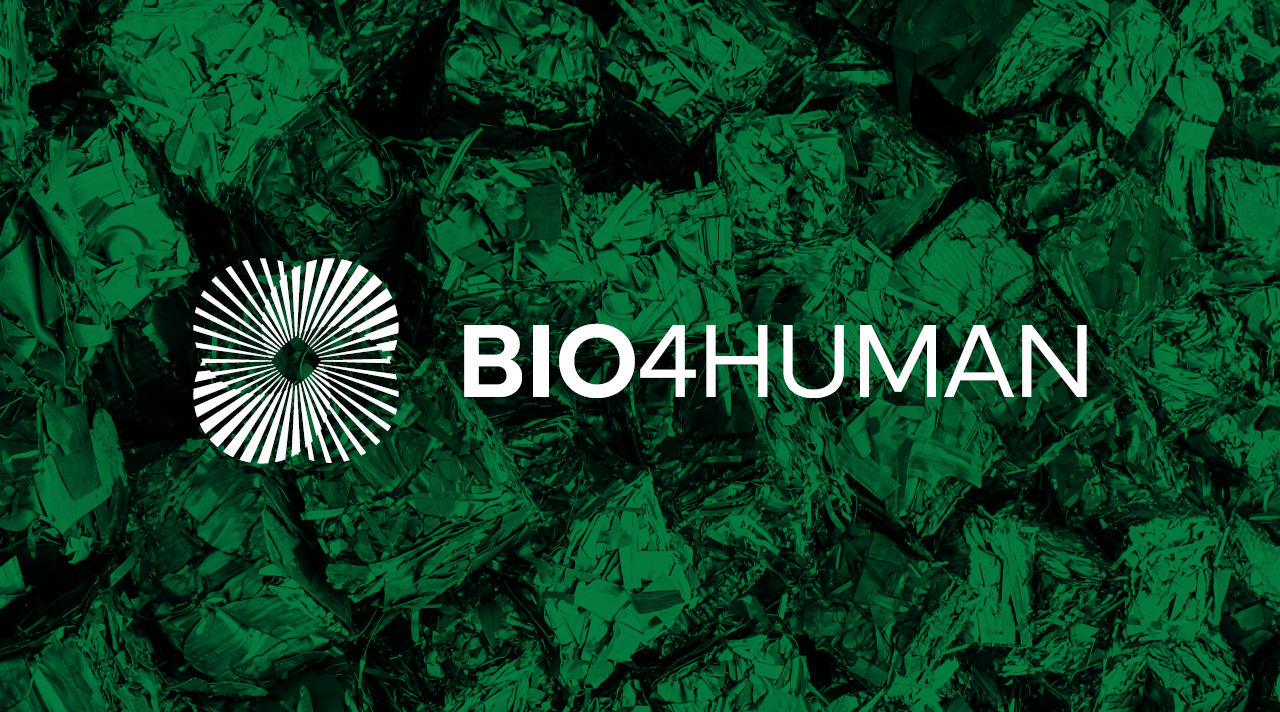
Bio4HUMAN: We support more sustainable waste management in humanitarian crisis
The Democratic Republic of the Congo, and especially the east of the country where we work as People in Need, has long been burdened by armed conflicts and the plundering of natural resources. War’s impact on the population’s livelihood is evident in their relationship with the environment, particularly in the fragile ecosystems facing unprecedented exploitation in the Congo Basin and the Great Lakes. These are also the most populated areas and need significant emergency support.
Since our team has been helping in these areas and climate resilience has been one of our key pillars, we joined the Bio4HUMAN project, which aims to develop a sustainable solution for waste management in humanitarian crises. The need for these solutions became more urgent.
Together with other humanitarian organisations, we will work on sustainable waste management in DRC and South Sudan, which could also apply to other humanitarian crises.
The project is funded by the European Union’s Horizon Europe research and innovation programme.
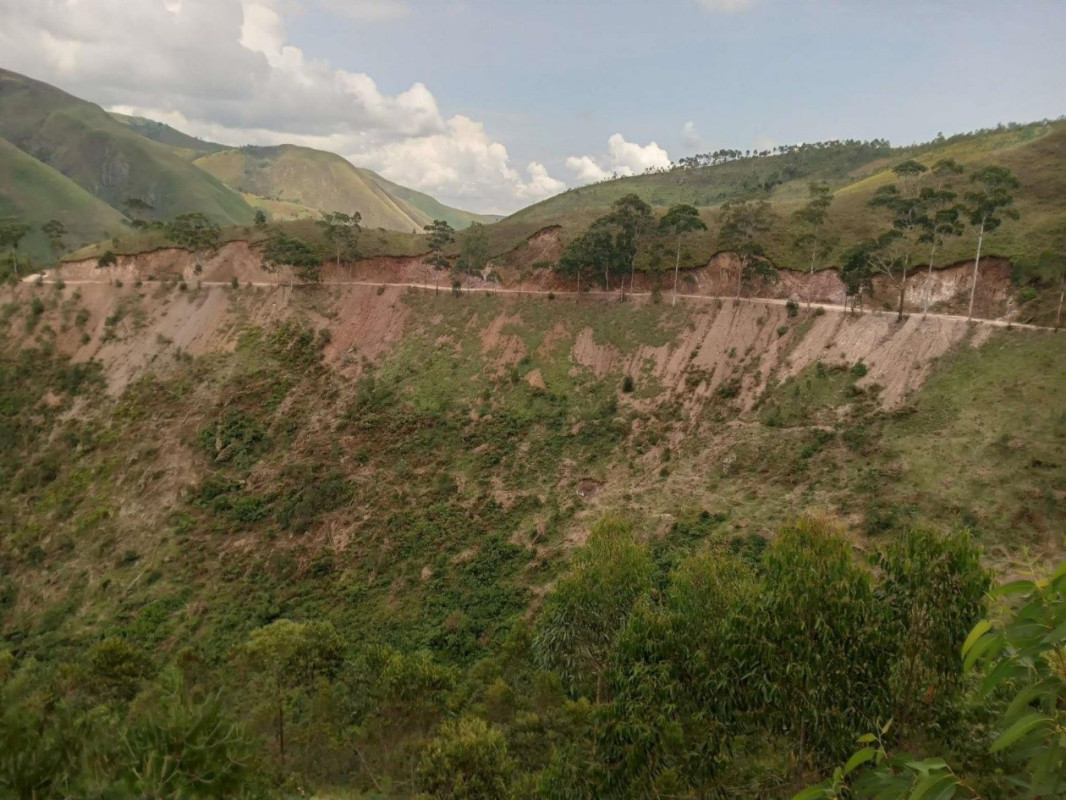
Renewable energy and sustainable livelihoods pilot project
To tackle the complex situation in DRC, PIN pilots a project in rural areas of Kaziba and Nyangezi health zones to replace hardwood charcoal with renewable biomass energy in the form of charcoal made of bamboo. Bamboo charcoal is a safe renewable energy, and since bamboo (unlike wood) can be harvested, it reduces the risk of precipitating deforestation. Furthermore, it has very significant burning qualities, it grows in the local habitat and it is important element of reforestation, especially in the area vulnerable to erosion. The aim is to introduce and adopt bamboo charcoal as a crucial step to more climate resilient communities sensitive to their local resources, and to protect the local system by active reforestation.
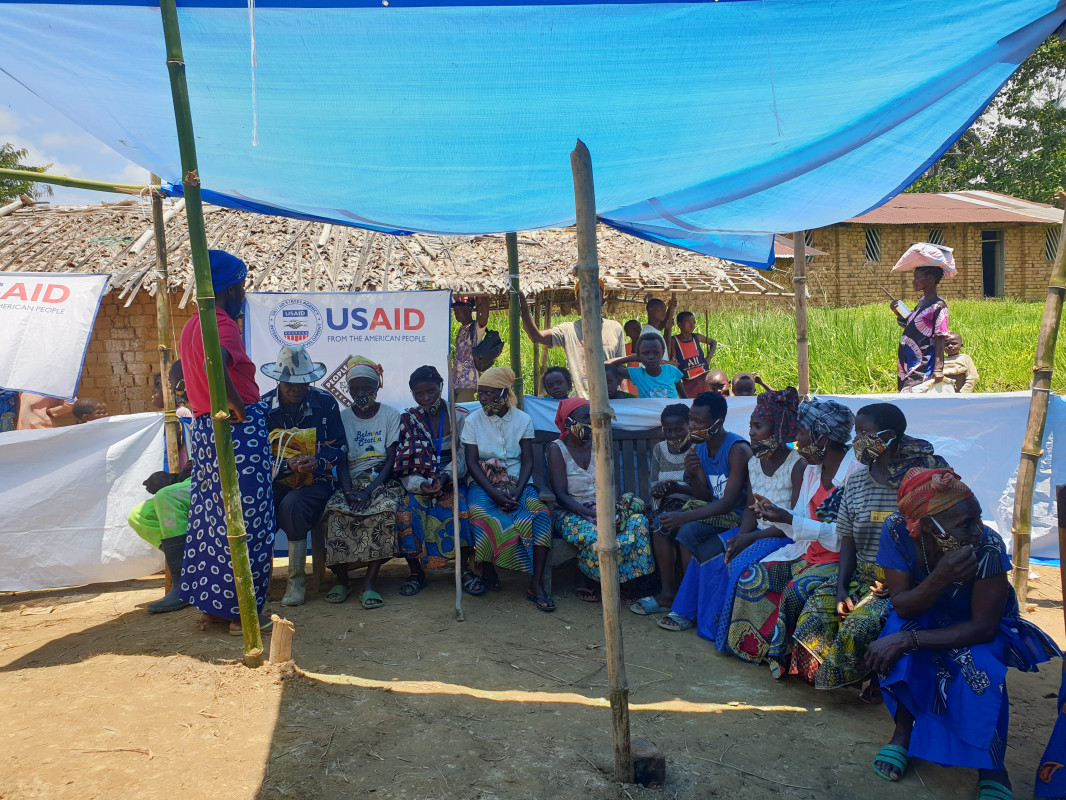
Emergency assistance to the internally displaced population in the Shabunda region
We are therefore trying to improve the harsh living conditions of local people by providing agricultural equipment and seeds of crops with higher nutritional value so that farmers themselves are able to provide sufficient crops for their families and become food self-sufficient. At the same time, we provide training for local communities on effective cultivation as well as safe hygiene and nutrition practices. It is the increase in food security combined with improved dietary and hygiene habits that serves as a prevention of acute malnutrition, especially among the most vulnerable segment of the population, i.e. children under 5 or pregnant and lactating women.
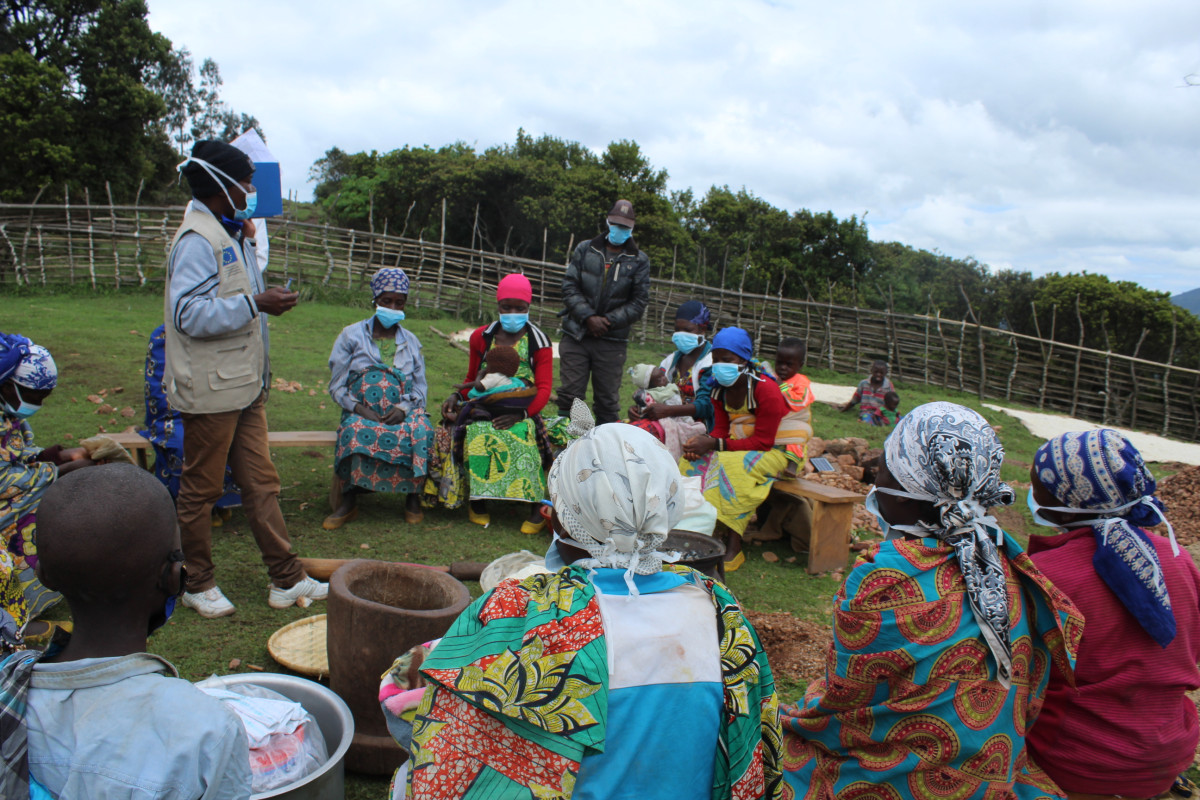
Tackling poor nutrition and health care in the Bijombo region
The Bijombo area (South Kivu province) is, similarly to other regions, deeply affected by the consequences of civil war, poverty, and ongoing conflicts between armed groups. The local clashes of rebels cause a constant movement of the population, which loses its only source of livelihood -- agricultural land and herds of cattle. Lack of food and the resulting nutritionally unbalanced diet mainly affect the population of children under 5 years of age and pregnant and lactating women in the long term. Moreover, due to frequent malnutrition, children are much more susceptible to diseases such as malaria, typhus, anemia, and respiratory infections. In addition, there are no functioning healthcare systems in the area that are able to meet the needs of vulnerable groups. Medical centers are difficult for the sick to access, and healthcare is too costly, especially for internally displaced people who have lost their property, their livelihoods, and their income. The project builds on previous interventions in Lemera. Its aim is to reduce mortality and morbidity in the region, with a focus on the most vulnerable groups. People will have better access to health care, which is provided free of charge to those most in need. Together with the partner organization Doctors of the World, we supply the health centers with medicines and necessary equipment and train staff. Special attention is paid to the treatment of acute malnutrition in children and women. Through an information campaign, people learn to recognize the symptoms of disease and malnutrition and learn about prevention methods and treatment options. The project is implemented together with the organization Doctors of the World, which has long-term experience in providing healthcare.
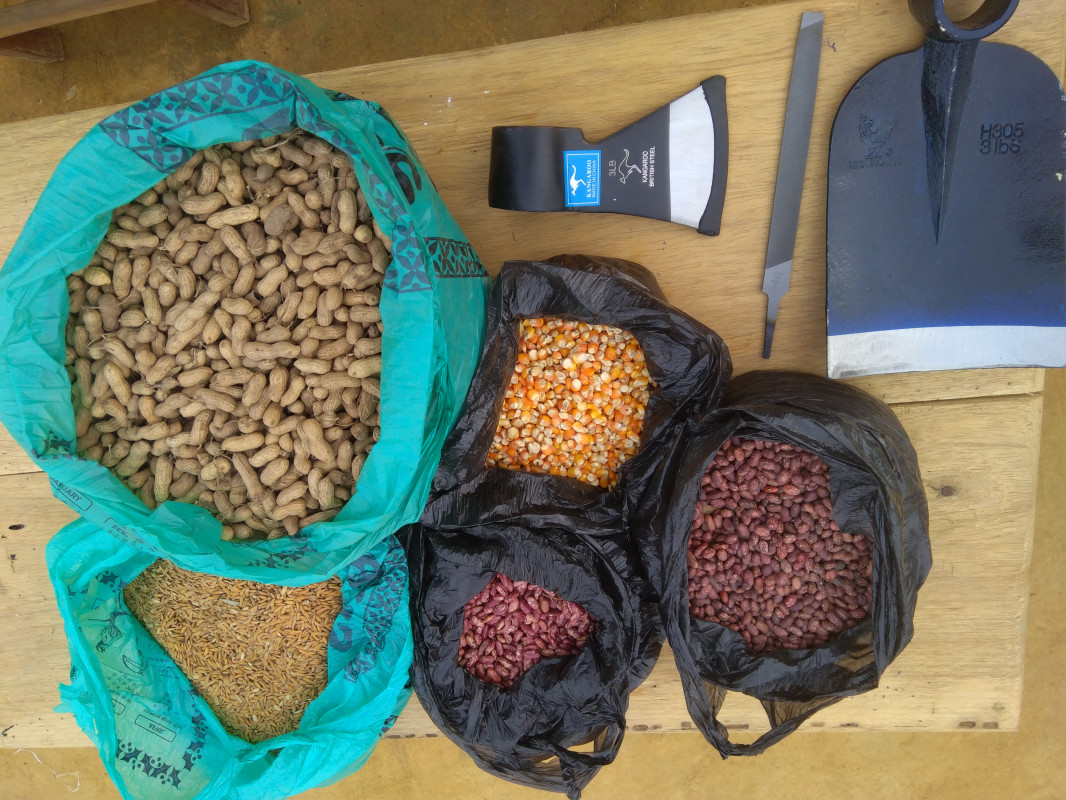
Tackling poor nutrition in Kalole, South Kivu
As a result of ongoing fighting and persistent instability in the region, the Kalole region is plagued by a food crisis and poverty. Besides, Kalole has recently become a refuge for populations fleeing violence and conflict in neighboring regions, which has further intensified land and crop demands. Agriculture is often the only source of livelihood. Due to its remoteness, Kalole is difficult to access both in terms of humanitarian aid and access to local markets. Due to the poor quality of agricultural land and lack of necessary tools and seeds, agricultural production is very limited, so the population depends on a narrow type of food which is not sufficiently nutritious. The global pandemic of Covid-19 dramatically affects the food crisis even more, intensifies the needs of vulnerable groups, and deepens their life insecurities.
People in Need in Kalole assists the most vulnerable group of the population (i.e. households with pregnant or breastfeeding women, elderly members, malnourished children under the age of 5, disabled persons, and households headed by women or children). The aim is to ensure agricultural self-sufficiency so that communities have enough food for their own use and sale on the market. We distribute agricultural tools and seeds, followed by training to improve agricultural production and proper preparation of nutritionally balanced meals. A key part is an information campaign to prevent the spread of the Covid-19 pandemic. All the information about hygiene practices and quality nutrition is shared through radio broadcasts and regular community visits, always with regard to pandemic-related measures.

Tackling poor nutrition and health care in Lemera region
But forced relocations have also taken a toll on host communities. For instance, local markets were not prepared for the sudden influx of displaced people, which has led to severe food shortages in the region. Up to 20 % of displaced children suffer from malnutrition and, as a result, are more susceptible to diseases like malaria, typhoid, anemia or respiratory tract infections.
Moreover, the region suffers from a weak health-care system. Health-care facilities struggle with shortages of medicine and supplies, while sick people, and particularly those whose lives have been uprooted by the fighting, have limited access to affordable health care.
This project is in response to the nutritional and health crises caused by conflict in South Kivu. The goal is to reduce mortality and morbidity in this region, and treat malnutrition, especially among vulnerable groups – like young children and women. Through this project, people will gain better access to free and quality health care. And together with our partner organization, Médecins du Monde (Doctors of the World), regional health-care centers will be better supplied and trained.
Finally, the program’s information campaign in teaching people how to identify and treat diseases and malnutrition.

Improving nutrition and health care in the Mulungu region
This project aims to improve the living conditions of the region’s most vulnerable. The project seeks to deliver aid to children under five, pregnant women, mothers of young children, people displaced as a result of the conflict, and hosting communities that are helping the displaced.
The nutrition and health crises in the region are addressed concurrently. People in Need collaborates with five health-care facilities by training staff. In addition, PIN provides medical supplies, medicines and nutritional packages to health facilities and their patients.
At the same time, we organize awareness-raising activities to help parents identify the symptoms of various diseases and to prevent acute malnutrition. The project’s goal is to help people stand on their own as soon as possible. To that end, we also focus on agricultural production and food security for the most vulnerable families. We provide farmers with quality seeds to grow nutrient-dense crops and present effective and sustainable ways of land management. Additionally, the project introduces farmers to crops that help prevent malnutrition and disease. Finally, the project offers trainings on how to understand market prices and how to trade crops effectively.

Assistance to Victims of Armed Conflicts
Since 2013, Punia is one of the areas characterized by extremely high levels of malnutrition and poverty. Because of the conflicts of armed groups operating in the surrounding areas, there is a large number of internally displaced people. Remoteness, uneven terrain and unstable security situation not only not allow local people access markets and health care, but also make it difficult to provide assistance to those who need it the most. People in Need cooperates with local communities to improve their living conditions, especially in the sectors of nutrition, agriculture and health.
In the framework of the intervention, the People in Need team focuses on the most vulnerable groups of people such as children under 5 years old and pregnant and nursing women. We provide nutrition for over 20 000 children, and we organize community-based trainings on prevention of malnutrition and recognizing its initial symptoms. We deliver improved seeds to farmers such as nutritionally rich vegetables and crops we teach farmers how to effectively grow the seeds. In total, People in Need helps to more than 40 000 residents in the area and improves their living conditions and their knowledge in agriculture, so that they can stand on their own feet again.
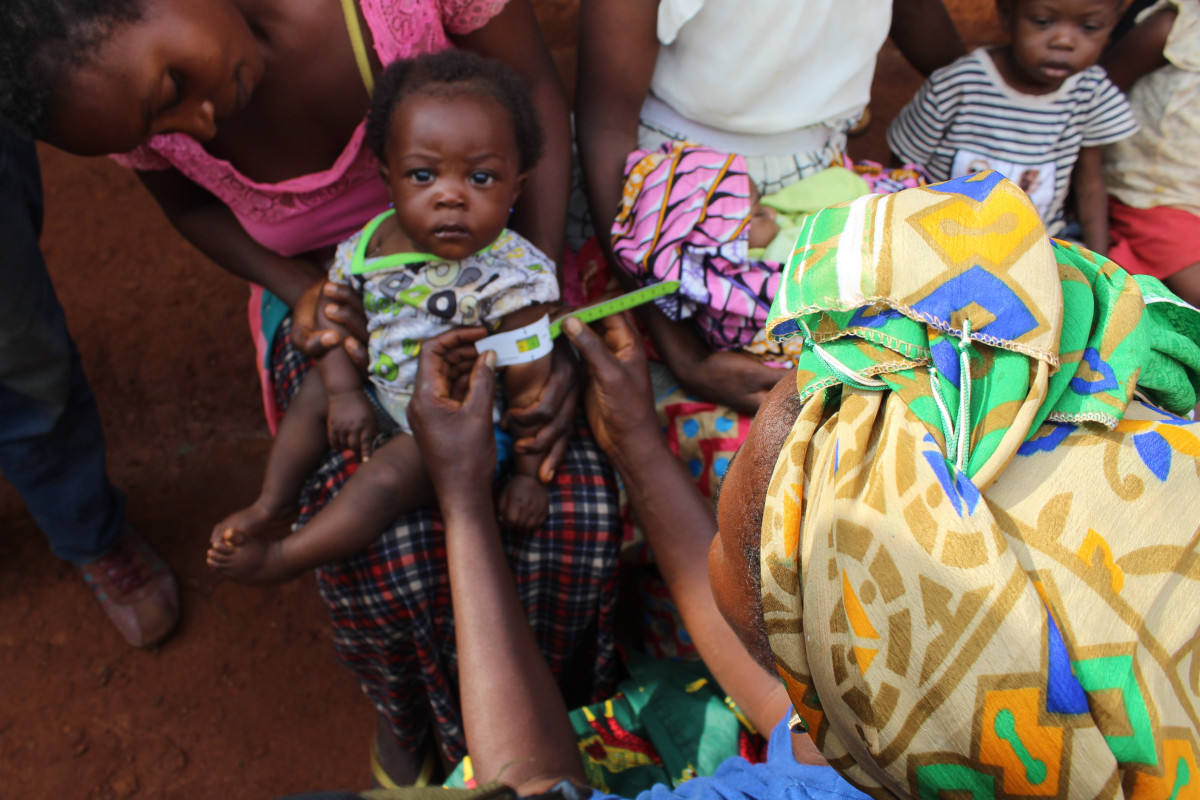
Treatment of acute malnutrition and support of health-care facilities in Bijombo region
As a result, large numbers of displaced people now have limited access to even the most basic health and sanitation services. When people flee violence, they often have little choice but to live in terrible conditions, where hygiene supplies are sparse and equipment like mosquito nets non-existent. This leads to an increased risk of malaria and other mosquito-borne illnesses. Meanwhile, hospitals and other health-care facilities lack medical supplies to treat most illnesses. On top of these challenges, a rubella epidemic has broken out in the area.
People in Need’s project focused on improving basic living conditions for those affected by conflict. The project ensured essential health care for the most vulnerable populations, including children and people on the run. PIN’s immediate assistance enabled 13,000 people to access free and quality health care. More than 800 children were treated for acute malnutrition in PIN-supported health-care centers. In cooperation with local organizations, two hundred female victims of sexual violence were provided with psychological support and adequate health care.
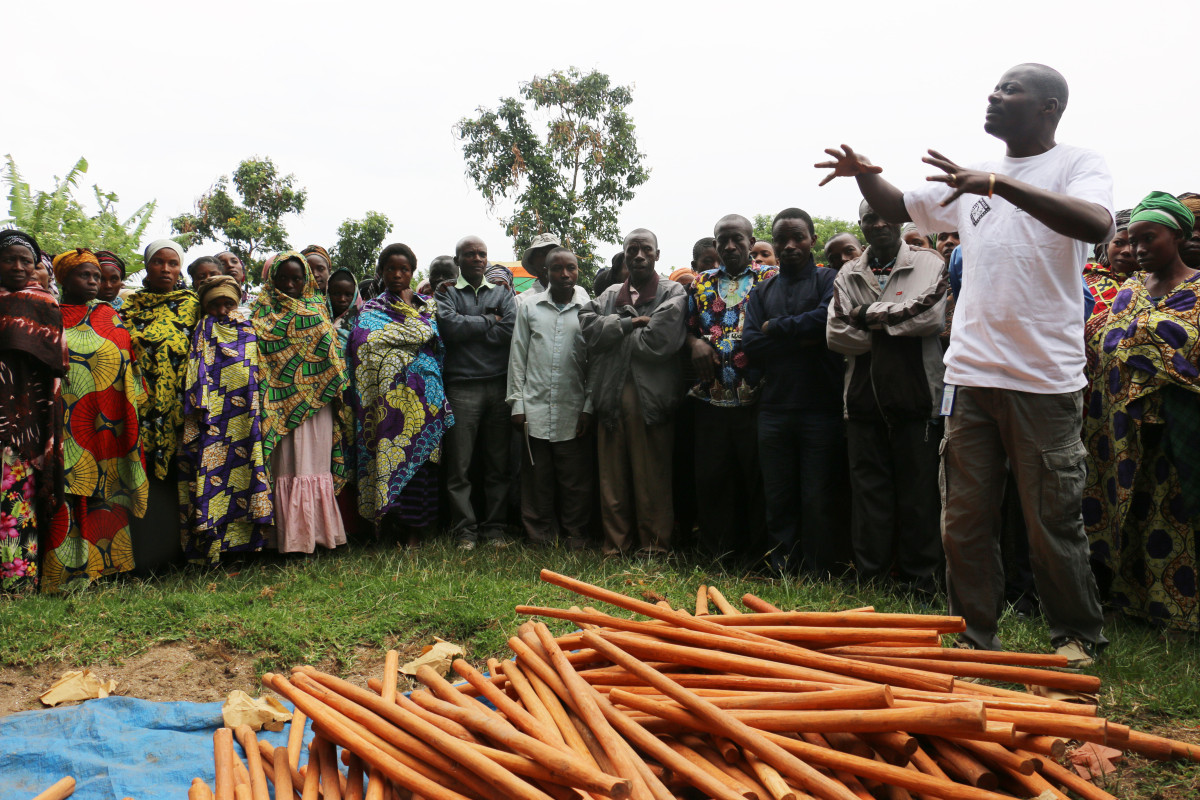
Prevention & Malnutrition Treatment
The main goal of this project is to reduce malnutrition in children younger than five years and in women of childbearing age (15 to 49 years) in the Minova region. People in Need combines community management of acute malnutrition and prevention with follow-up treatment and farming-oriented activities, such as gardening, planting of compatible crops, pest control or guinea pig raising. Other important aspects include dietary diversification trough own-produced crops, the reduction of food shortages as well as the improvement of hygiene conditions in the most vulnerable households.
In the rural areas where we work, local people’s knowledge about growing crops and gardening equipment availability are very limited despite appropriate climatic conditions for agricultural production. This is mainly due to the turbulent history of DR Congo, the country’s poor security and limited availability of goods from the cities. In these locations, thus prevails the cultivation of one crop - beans, corn, or manioc, which is of caloric value but nutritionally very weak. These crops then constitute the main part of local people’s diets. We are trying to expand local agricultural production to encompass other crops, such as spinach, and introduce new methods, such as separating crops in different lines, pest prevention, harvesting seeds for further use, etc. Culinary demonstrations then show the preparation of more nutritionally valuable meals. Together with better hygiene habits, people have a better chance in preventing the malnutrition of their children and alleviate the causes of diarrheal diseases.
As part of the treatment of malnutrition, we also raise awareness in the communities by presenting ways to recognize it early and then treat the affected children with therapeutic milk in health centres. It also includes ongoing training of health personnel and field community workers.
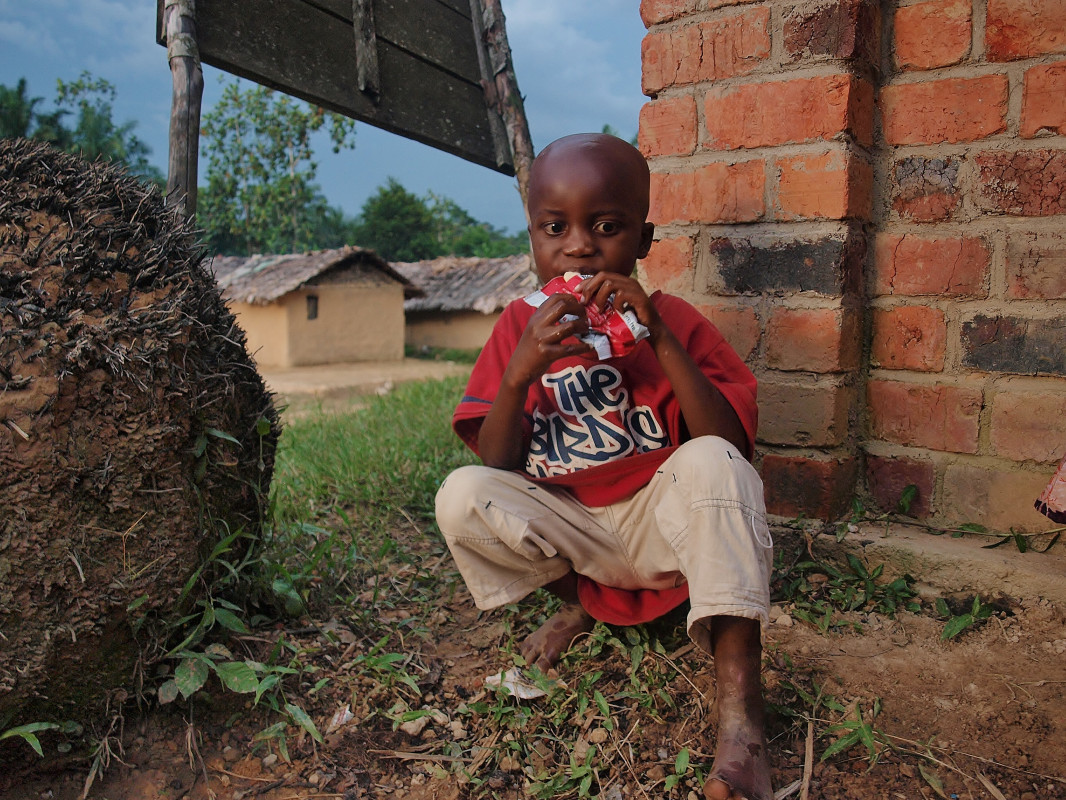
Small-scale livelihood provision
People in Need (PIN) provided aid to tens of women, victims of sexual violence, with the aim of improving their life situation and increasing their self-sufficiency. Tens of women received domestic animals or micro-financial support to run a small business such as selling fried fish on the market.
PIN supported an orphanage in the small town of Katana, which houses over one hundred children. The overall living conditions of these children has enhanced due to increased financial support. The orphanage is now provided fields for growing vegetables and legumes, and household animals to produce dairy products.
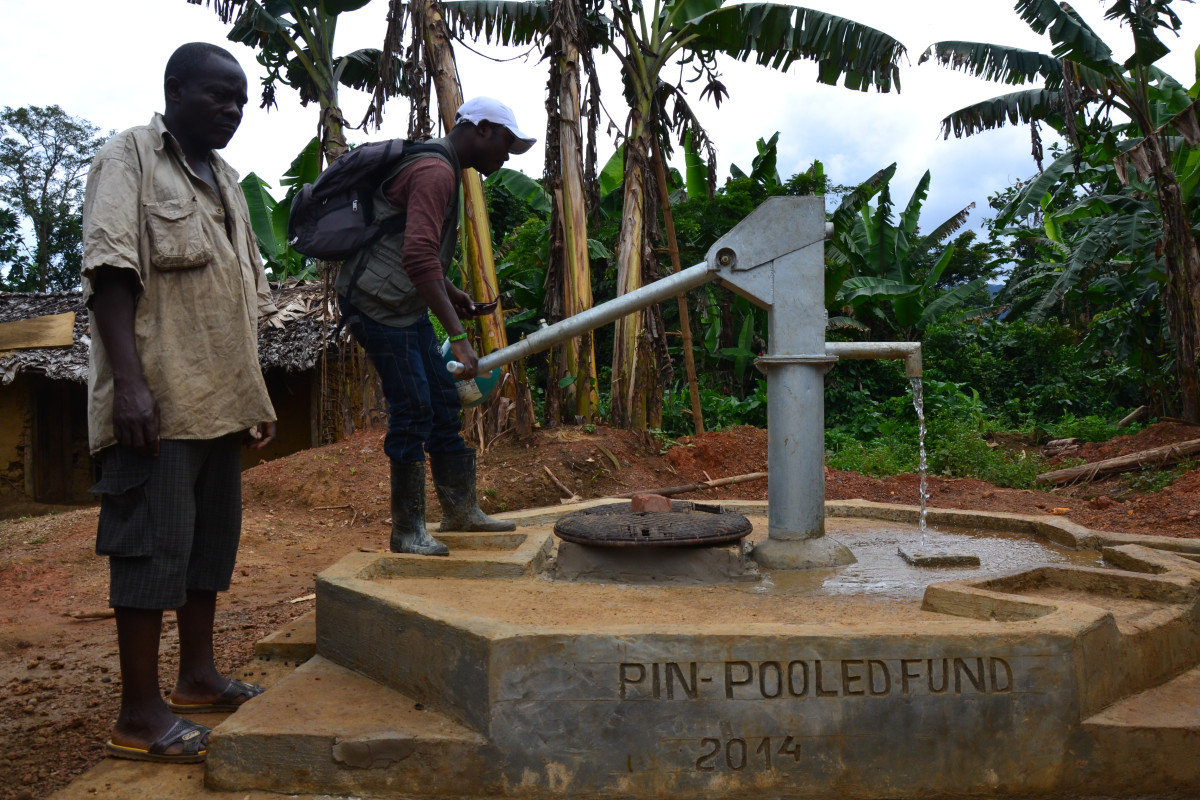
Access to safe water
Water sources abound in the warm, moist environment which is typical for the rainforest that covers eastern Congo. Our programs aim to identify the source, capture and ultimately to deliver drinking water in towns and villages in the region. Drinking water from sources on inaccessible slopes is drained into the reservoirs above the villages by using the gravitational system. Using a network of pipes, the water arrives at the distribution points in the villages. The water wells and distribution systems bring the drinking water directly to the villages, which among others contribute also to reducing the risk of sexual abuse of women and girls. It is the women and girls who are traditionally in charge of supplying water to the household.
Latrine construction in schools, health centers and public areas is another part of the program. PIN instructs teachers and medical staff in the prevention of infectious diseases. Health volunteers trained by People in Need implement community sensitization activities.
Along with these activities, PIN implements the national program of “Healthy villages” (Village Assaini). This program aims to reduce the morbidity and mortality associated with waterborne diseases and lack of basic sanitation in rural areas by creating a healthy environment and the promotion of good practicesof individual and collective hygiene. After meeting seven basic criteria such as sufficient number of quality latrines or access to drinking water for the villagers, the village obtains a certificate of “healthy village” which is a very motivating matter. Thanks to PIN intervention, more than 30 villages successfully passed the process of certification.






